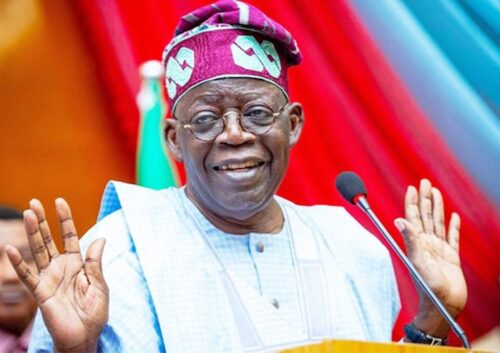
In a significant move to address Nigeria’s persistent farmer-herder conflict, President Bola Tinubu has announced the creation of the Federal Ministry of Livestock Development. The announcement was made on Tuesday during the inauguration of the Presidential Committee on Livestock Reforms at the Council Chamber of the State House in Abuja.
The establishment of this ministry signals the government’s commitment to tackling the longstanding tensions between farmers and herders, which have been a source of violence and economic disruption across the country.
President Tinubu will chair the newly formed committee, with former Chairman of the Independent National Electoral Commission (INEC), Attahiru Jega, serving as Deputy Chairman. The committee is tasked with developing actionable strategies to promote peaceful coexistence between herders and farmers, safeguard national security, and enhance the economic stability of Nigeria.
This development follows Tinubu’s approval of the Presidential Committee on Livestock Reforms nearly ten months ago. The committee was formed in response to a report from the National Conference on Livestock Reforms and Mitigation of Associated Conflicts in Nigeria.
Led by the All Progressives Congress (APC) National Chairman, Abdullahi Ganduje, the committee presented 21 key recommendations to the President. Among these was the creation of a Ministry of Livestock Resources to institutionalize the management of livestock development and conflict resolution. Tinubu’s decision to establish the Federal Ministry of Livestock Development aligns with one of these crucial recommendations.
The President emphasized that the Federal Ministry of Livestock Development will collaborate closely with the Federal Ministry of Agriculture and Food Security to craft sustainable solutions to the farmer-herder crisis. This includes ensuring equitable access to land, improving agricultural practices, and fostering mutual understanding between the groups. The government has also committed to covering the costs of acquiring land to facilitate coexistence and reduce tensions.
Historical Context of the Farmer-Herder Conflict
The farmer-herder conflict in Nigeria has deep roots, spanning decades. Disputes often arise over access to essential resources like land and water, exacerbated by increasing agricultural expansion and the effects of climate change. These clashes have resulted in significant casualties, with hundreds of lives lost in recent years.
One of the most recent incidents occurred in December 2023 in Plateau State, where over 100 people were killed in Mangu, a region located 74 kilometers southeast of the state capital, Jos. Plateau State is a microcosm of Nigeria’s religious and ethnic diversity, sitting at the intersection of the predominantly Muslim north and largely Christian south. The violence in the region has often been framed as an ethno-religious conflict, with clashes typically involving Muslim Fulani herders and Christian farmers from various ethnic groups. However, experts point to resource scarcity, exacerbated by climate challenges, as a critical driver of these disputes.
President Tinubu’s establishment of the new ministry represents a comprehensive effort to address these underlying issues while promoting unity and economic progress.


